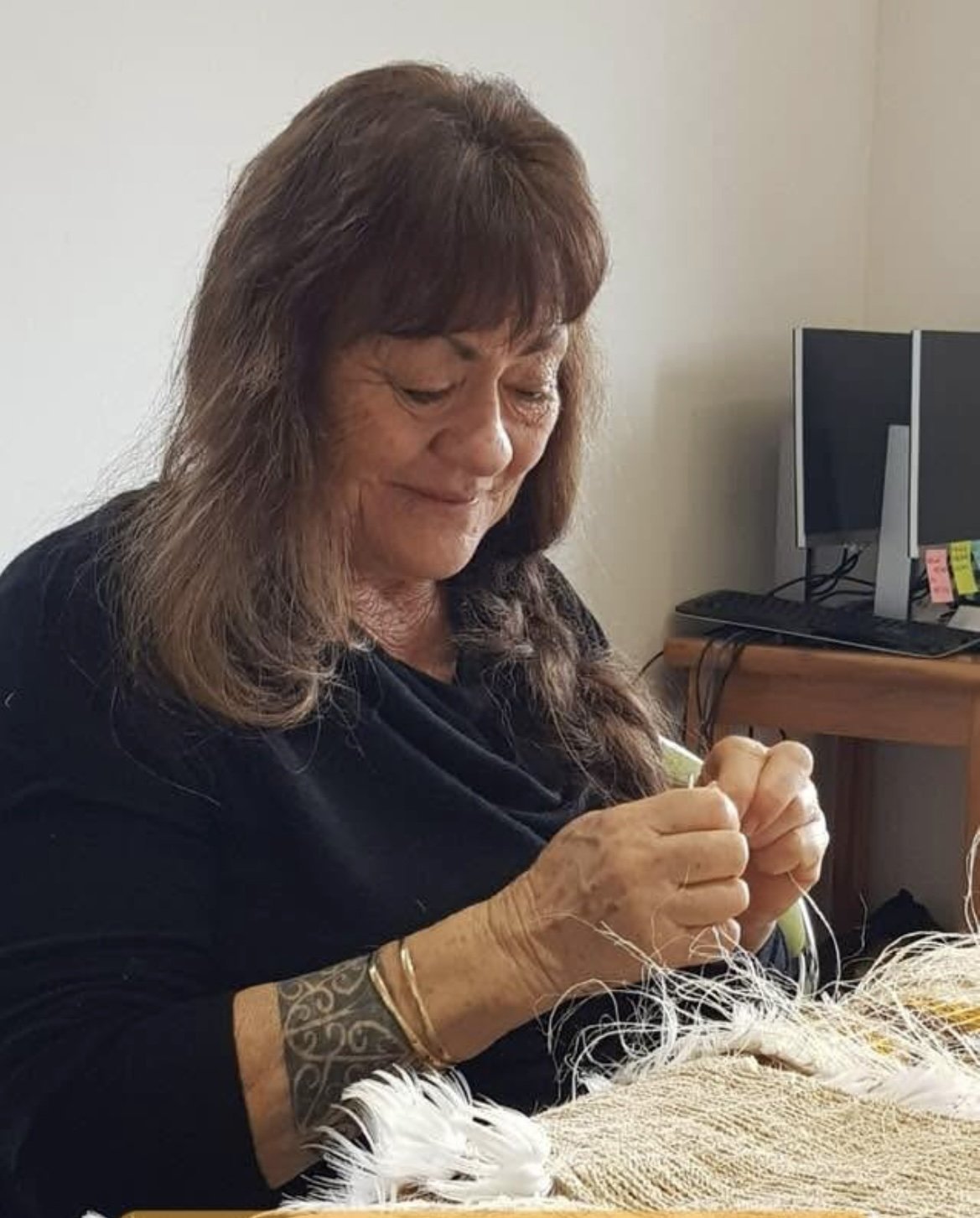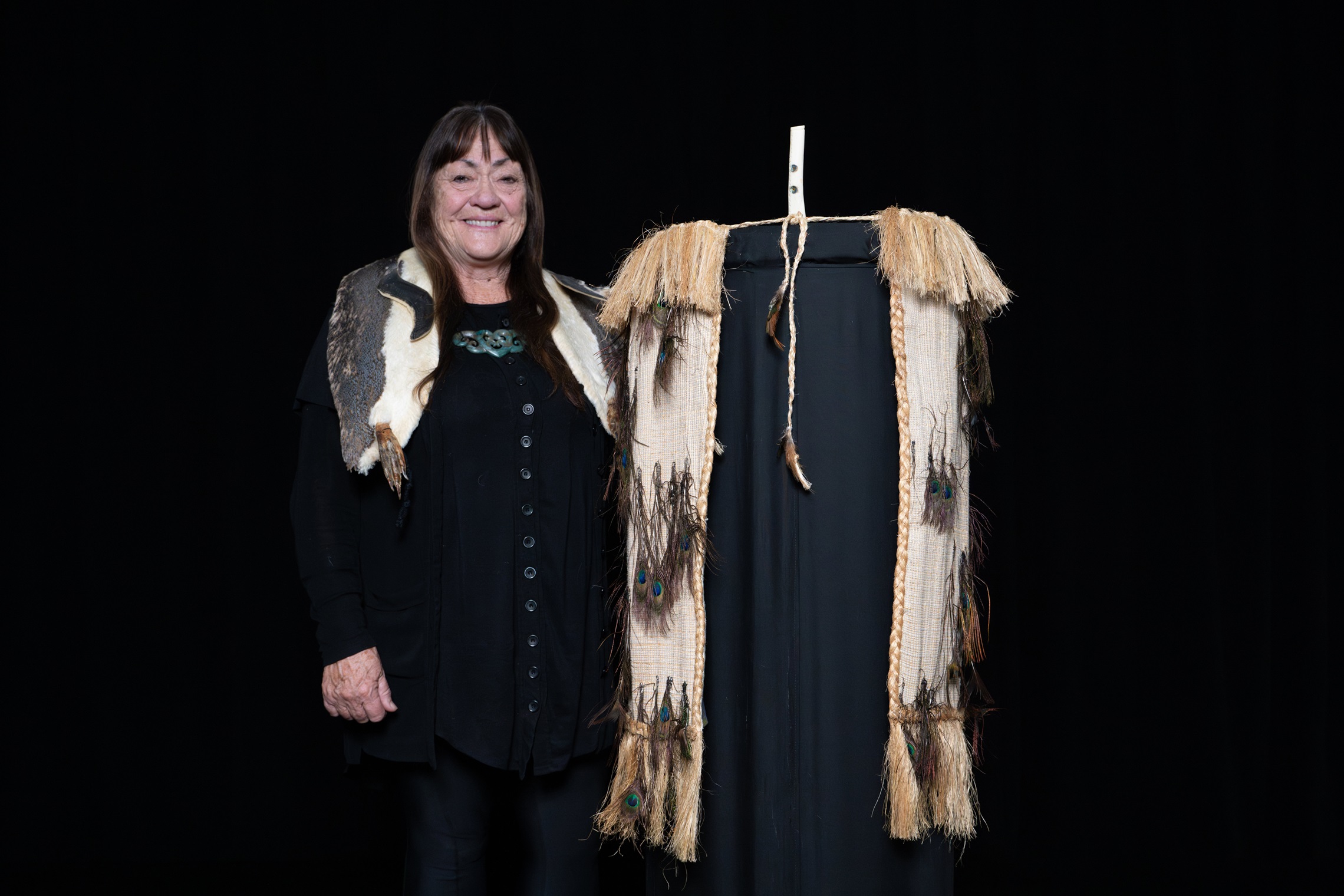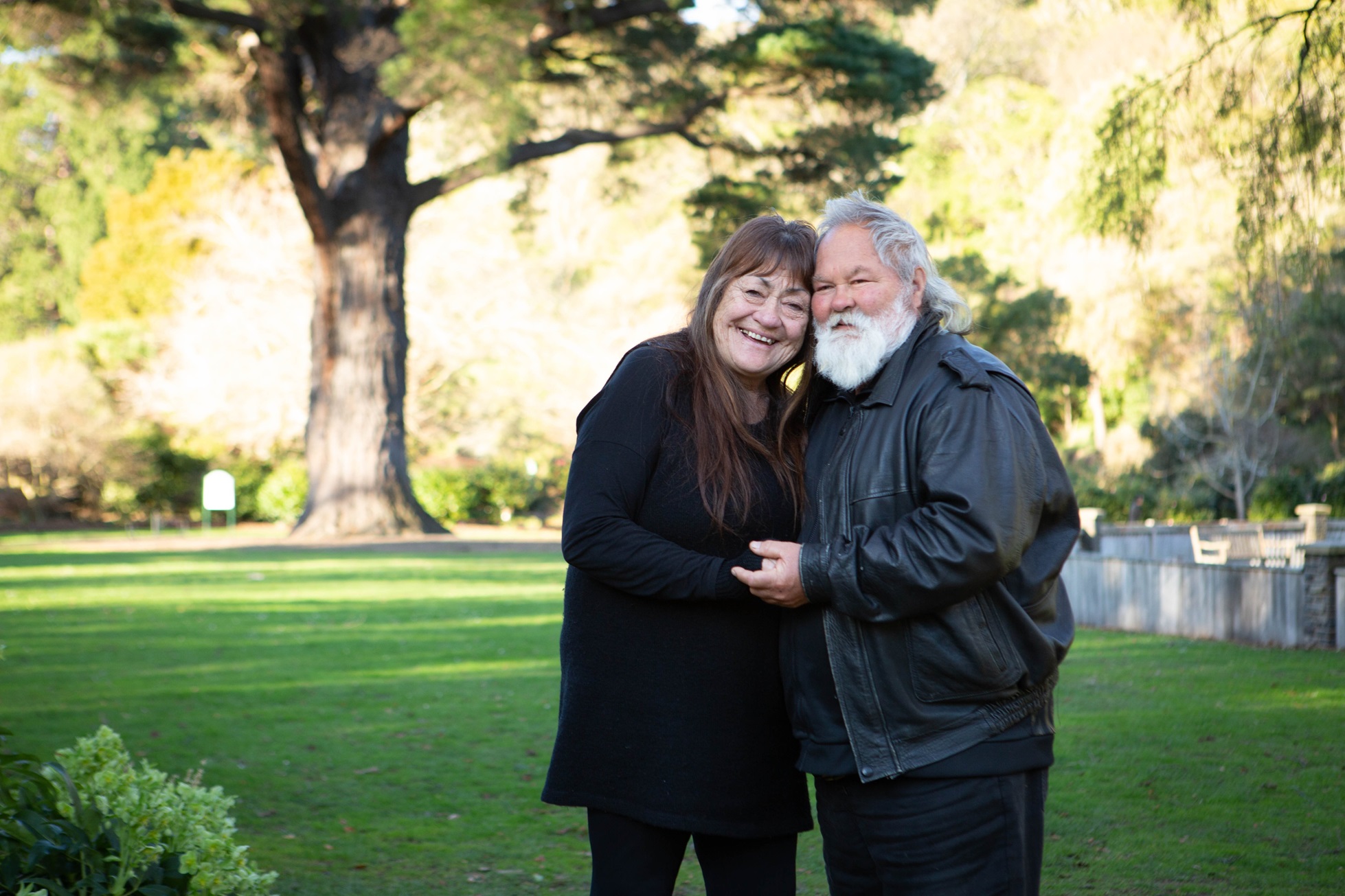
A master of her craft, Roka Hurihia Ngarimu-Cameron MNZM dedicated a lifetime to the preservation of traditional Māori weaving and caring for tamariki.
Ngarimu-Cameron (Te Whānau-ā-Apanui, Te Arawa, Whakatōhea, Ngāti Awa and Ngāti Tūwharetoa, Irish) was an internationally recognised artist, tohunga raranga (master weaver) and co-founder of Ōtepoti Dunedin’s Te Whānau Arohanui charitable trust.
Ngarimu-Cameron was born in Ōpōtiki on July 27, 1948, and raised in Hāwai.
She was named after her grandmother, who witnessed the destruction of the Pink and White Terraces during the eruption of Mt Tarawera, in 1886.
In 2008, she graduated from the Otago Polytechnic School of Art with a master of fine arts.
Her dissertation explored the combination of traditional Māori weaving and loom weaving, and culminated in an exhibition at the Dunedin Public Art Gallery.
In 2011, she was made a Member of the New Zealand Order of Merit (MNZM) for services to Māori.
She also had a degree in social work.
Her husband of 50 years, Kerry Cameron, described her as "a legend" who dedicated her lifetime to exhibiting indigenous artwork around the country and overseas.
She was an excellent role model, incredibly knowledgeable and a master in her field.
She was remembered as someone who valued attention to detail, keeping things simple and getting the basics right.
Keeping up with her was "quite a task", Mr Cameron said.
"Every day was a new challenge because she would never sit idle.
"Community groups would ring in from around the country wanting work done, and she would either do it or train them to do it.

Ngarimu-Cameron left behind a huge legacy in her work of both weaving and caring for people.
In 1986, the pair founded and funded Te Whānau Arohanui — a charitable trust dedicated to sheltering and nurturing young people in need of care, with a whare wānanga (learning centre) and foster care centre in Waitati and a whare at St Clair.
Ngarimu-Cameron’s first acknowledgement was always back to mana whenua for providing cultural mentorship and support.
She cared for hundreds of tamariki and special needs children, teaching them all how to weave.
Weaving was a tool for therapeutic support, involving children in a creative activity to help them with their healing.
Her community work extended beyond the Māori community.
She worked for the betterment of everyone, supporting school and church groups interested in upholding Te Tiriti o Waitangi principles to honour Aotearoa New Zealand’s dual cultural heritage, and also educating them about the country’s history from a Māori perspective.
Ngarimu-Cameron travelled around the country and overseas offering indigenous workshops.
She made korowai (ceremonial Māori cloaks) on behalf of Creative New Zealand for dignitaries in the United States, and sat on national weaving committees.
She pioneered a technique to reduce the time it took to create korowai by threading harakeke (flax) through a western loom.
The flax fibres were traditionally woven by hand, and it was estimated her method could reduce the weaving time from years to months.
Weaving was her way of life, and her status within Māoridom as a master weaver came about through having adorned a wharenui (meeting house).
She established a wharenui called Ranginui and an arts and crafts institute, Te Whare Toi Rimu, which was named after her.
Ngarimu-Cameron was a lecturer in traditional arts at the University of Otago School of Māori, Pacific and Indigenous Studies.
She also taught at Te Wānanga o Aotearoa and at the Southern Institute of Technology in Tāhuna Queenstown.

She was always open to sharing knowledge of her mahi toi (art/craft) and worked alongside the University of Waikato and marine scientist Prof Kura Paul-Burke to design mussel spat lines as part of a mātauranga Māori-led restoration project of the mussel population at Ōhiwa Harbour.
Ngarimu-Cameron’s daughter, Lisa Phillips, said she was a knowledgeable person within the weaving world and, as her daughter, she was fortunate to have had those skills handed down to her.
She was very caring as a mother and opened her heart up to others.
"She was not just a mother to me, she was a mother to a whole lot of people.
"I’ve grown up with foster brothers and sisters and she always shared and cared for anybody that came into her space."
She recalled a bush excursion with her mother to look for tikumu (mountain daisies) to use for weaving.
With them out in the bush were pigs.
"She didn’t care.
"She was just laughing and carrying on and joking that ‘yes, a pig’s going to come out of that bush and it’s going to jump on us’.
"I actually turned the music on, on my phone, to try and scare them away.
"She was sitting there laughing at me, because I had the music on."
Ngarimu-Cameron had a lot of adventures, and with them came a lot of laughter.
"But there was also a serious side of her to make sure we achieved our mahi to the best of our ability."
Ngarimu-Cameron died on June 10, aged 76.
She is survived by husband Kerry and children Ricky, Lisa, Francis, Carl and Keith. — Tim Scott












